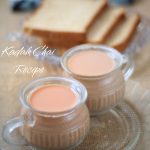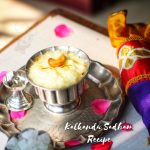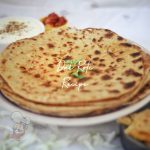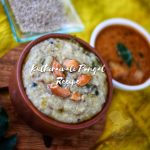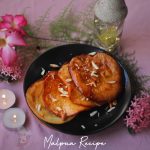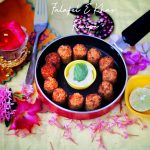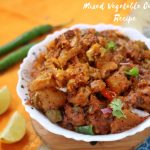Enjoy this sizzling hot Mangalorean Kasai that comes with a gamut of flavors just to enchant you and replenish your body.. Try it yourself and benefit from its health benefits..Pair it up with your favorite cookies and have fun with your family... A perfect way to spend your cozy and lazy weekend indeed..
Mangalorean tea, also known as kasai or kadha, is a popular beverage from the Mangalore region of India. It is known for its strong and bold flavor, which is achieved through the use of spices such as cinnamon, cardamom, cloves, and ginger.
One of the unique features of Mangalorean tea is that it is often made with milk, giving it a creamy and rich texture. This is in contrast to other teas from India, such as masala chai, which are often made with water and a mixture of spices. Mangalorean tea is traditionally enjoyed in the morning or afternoon, often as a part of a mid-day snack or as an accompaniment to breakfast. It is also a popular beverage to serve to guests during social gatherings.
Origin And History Of Mangalorean Kasai:
The history of tea consumption in India dates back to the early 19th century, when the British East India Company introduced tea plantations in India to compete with Chinese tea production. The British also introduced the concept of adding milk and sugar to tea, which eventually became a popular way of consuming tea in India.
Over time, various regions in India developed their own unique ways of preparing tea, with each region incorporating local ingredients and flavors into their recipes. The Mangalorean community developed their own version of tea, which became known as Mangalorean chai.
Mangalorean chai is typically made with strong black tea, milk, and a blend of spices such as cardamom, cloves, cinnamon, ginger and yet other aromatic spices. The tea is boiled together with the spices and milk to create a strong and flavorful brew. It is often served with snacks or biscuits, making it a popular choice for breakfast or as a mid-day snack.
Today, Mangalorean chai has become a popular beverage throughout India, and is enjoyed by people of all ages and backgrounds. It is also gaining popularity in other parts of the world, particularly among tea enthusiasts who are looking for new and unique tea flavors to try.
Benefits Of Mangalorean Chai:
Boosts energy: Mangalorean chai contains caffeine, which is a natural stimulant that can help to increase alertness and energy levels.
Rich in antioxidants: Black tea, the base for Mangalorean chai, contains antioxidants that help to protect the body against damage from harmful molecules known as free radicals.
Improves digestion: The spices used in Mangalorean chai, such as ginger and cardamom, have been shown to aid digestion and relieve digestive discomfort.Helps to relieve stress: Drinking a warm cup of Mangalorean chai can help to promote relaxation and reduce stress levels.
Anti-inflammatory properties: Many of the spices used in Mangalorean chai, such as ginger and cinnamon, have anti-inflammatory properties which may help to reduce inflammation in the body.
Helps to relieve stress: Drinking a warm cup of Mangalorean chai can help to promote relaxation and reduce stress levels.
May help with weight loss: Drinking Mangalorean chai without added sugar or with a natural sweetener like honey, can help to control cravings and reduce the desire to snack between meals, potentially aiding in weight loss.
Impact Of Mangalorean Chai In Indian Cuisine:
Mangalorean chai, also known as "kadak chai" or "strong tea," is a popular tea preparation in the Indian state of Karnataka, specifically in the coastal city of Mangalore. This tea is typically made by boiling water with loose black tea leaves, milk, and sugar or jaggery (unrefined cane sugar). Sometimes, spices such as cardamom, ginger, and cinnamon may also be added for flavor. The tea is boiled for several minutes until it becomes strong and flavorful, and is then strained and served hot.
Mangalorean chai is often enjoyed as a morning beverage and is also a popular accompaniment to breakfast dishes such as dosas (fermented rice and lentil crepes) and idlis (steamed rice cakes). It is known for its strong and robust flavor, which can be attributed to the use of loose tea leaves and the long boiling process.
Mangalorean chai has significant cultural and culinary importance in Indian cuisine, particularly in the state of Karnataka and the coastal region of Mangalore. Here are some of the reasons why:
Traditional Beverage: Mangalorean chai has been a traditional beverage in the region for generations and is deeply ingrained in the local culture. It is often enjoyed as a morning or evening beverage and is a popular choice among tea lovers.
Health Benefits: Tea is known for its health benefits, and Mangalorean chai is no exception. The addition of spices like ginger, cardamom, and cinnamon can provide various health benefits, including improving digestion and boosting immunity.
Accompaniment to Food: Mangalorean chai is often paired with local breakfast dishes like dosas and idlis, making it an integral part of the culinary experience in the region.
Social Importance: In India, sharing a cup of tea is considered a social activity that promotes conversation and community. Mangalorean chai is no different, and it is often enjoyed in groups, whether at home or in tea shops.
- Overall, Mangalorean chai is a beloved beverage in Indian cuisine and is significant for its cultural, culinary, and social importance.
Some Useful Tips:
Choose the Right Tea Leaves: The quality of the tea leaves is crucial in making the perfect kasai. Use loose black tea leaves instead of tea bags for a stronger and more robust flavor.
Boil the Tea for a Longer Time: Unlike other teas, Mangalorean kasai is boiled for an extended period to achieve a strong flavor. Boil the tea leaves, water, and spices for at least 5 to 7 minutes or until the tea becomes dark and strong.
Add Spices: Mangalorean kasai often includes spices like cardamom, ginger, and cinnamon. Adding these spices can enhance the flavor of the tea and provide additional health benefits.
Use Fresh Milk: Use fresh milk instead of powdered milk for a creamier and richer taste. Add milk after the tea has boiled for a few minutes and continue to boil it together for a few more minutes.
Sweeten with Jaggery: Instead of white sugar, use jaggery (unrefined cane sugar) to sweeten the tea. Jaggery adds a distinct flavor and is considered healthier than white sugar.
Faqs:
How is Mangalorean kasai different from other teas?
Mangalorean kasai is boiled for an extended period, unlike other teas, to achieve a strong and robust flavor. It is also often brewed with spices like cardamom, ginger, and cinnamon, which provide additional flavor and health benefits.
What are the health benefits of Mangalorean kasai?
Mangalorean kasai, like other teas, has various health benefits. The addition of spices like ginger, cardamom, and cinnamon can aid digestion, boost immunity, and reduce inflammation. Tea is also rich in antioxidants, which can protect against free radical damage.
All About Mangalorean Kasai:
Nature: Mangalorean kasai has a dark, rich color and a thick texture due to the prolonged boiling process. It is often served hot and can be quite strong and robust.
Colour: The color of Mangalorean kasai is a dark brown or reddish-brown, depending on the amount of tea leaves used and the brewing time.
Consistency: The consistency of Mangalorean kasai is thick and creamy due to the addition of milk. It can have a slightly grainy texture due to the jaggery or sugar used to sweeten the tea.
Flavor: The flavor of Mangalorean kasai is strong and robust, with a slightly bitter taste due to the high tannin content in the tea. It is often brewed with spices like cardamom, ginger, and cinnamon, which add a distinct flavor and aroma to the tea.
Taste: The taste of Mangalorean kasai can be quite strong and may take some getting used to for those who are not used to drinking strong tea. It has a bold and complex flavor profile that is often described as earthy, nutty, and spicy. The addition of jaggery or sugar can provide a sweet and slightly caramel-like taste to the tea. Overall, Mangalorean kasai is a flavorful and unique tea that is popular in the coastal region of Karnataka in India.
Tantalizing Trimmings For Mangalorean Kasai:
Breakfast Foods: In Mangalore, kasai is commonly served with traditional breakfast dishes such as idlis, dosas, vadas, and upma. These dishes are a perfect complement to the strong flavor of the tea.
Biscuits and Cookies: Mangalorean kasai is also often enjoyed with biscuits or cookies, especially during tea time or as a snack. Tea biscuits, butter cookies, and other plain or mildly sweet cookies are a good choice.
Snacks: Mangalorean kasai can also be enjoyed with savory snacks like bhajjis, bondas, and samosas. These snacks provide a perfect balance to the strong flavor of the tea.
Sweets: Sweets like laddoos, burfis, and other traditional Indian sweets can be enjoyed with Mangalorean kasai. The sweetness of the sweets complements the strong and robust flavor of the tea.
Toast: Mangalorean kasai is also commonly served with toast or bread, which can be buttered or plain. The crispy texture of the toast provides a nice contrast to the thick and creamy texture of the tea.
Finest Ambience To Host An Evening Tea party With Kasai:
Decor: Set the mood by creating a warm and inviting atmosphere with cozy seating arrangements, comfortable cushions, and soft lighting. You could use traditional Indian textiles and decor to create an authentic feel.
Music: Play some soft instrumental music or classical Indian music to set the tone for the party. This can add to the ambiance and create a relaxing environment for guests.
Menu: Along with Mangalorean kasai, offer a range of other teas, as well as some traditional Indian snacks like samosas, bhajjis, and vadas. You could also offer some sweet treats like laddoos or burfis.
- Overall, the perfect ambience for a Mangalorean kasai tea party is warm, welcoming, and relaxed. The focus should be on creating an enjoyable and memorable experience for guests, with good food, good company, and good conversation.
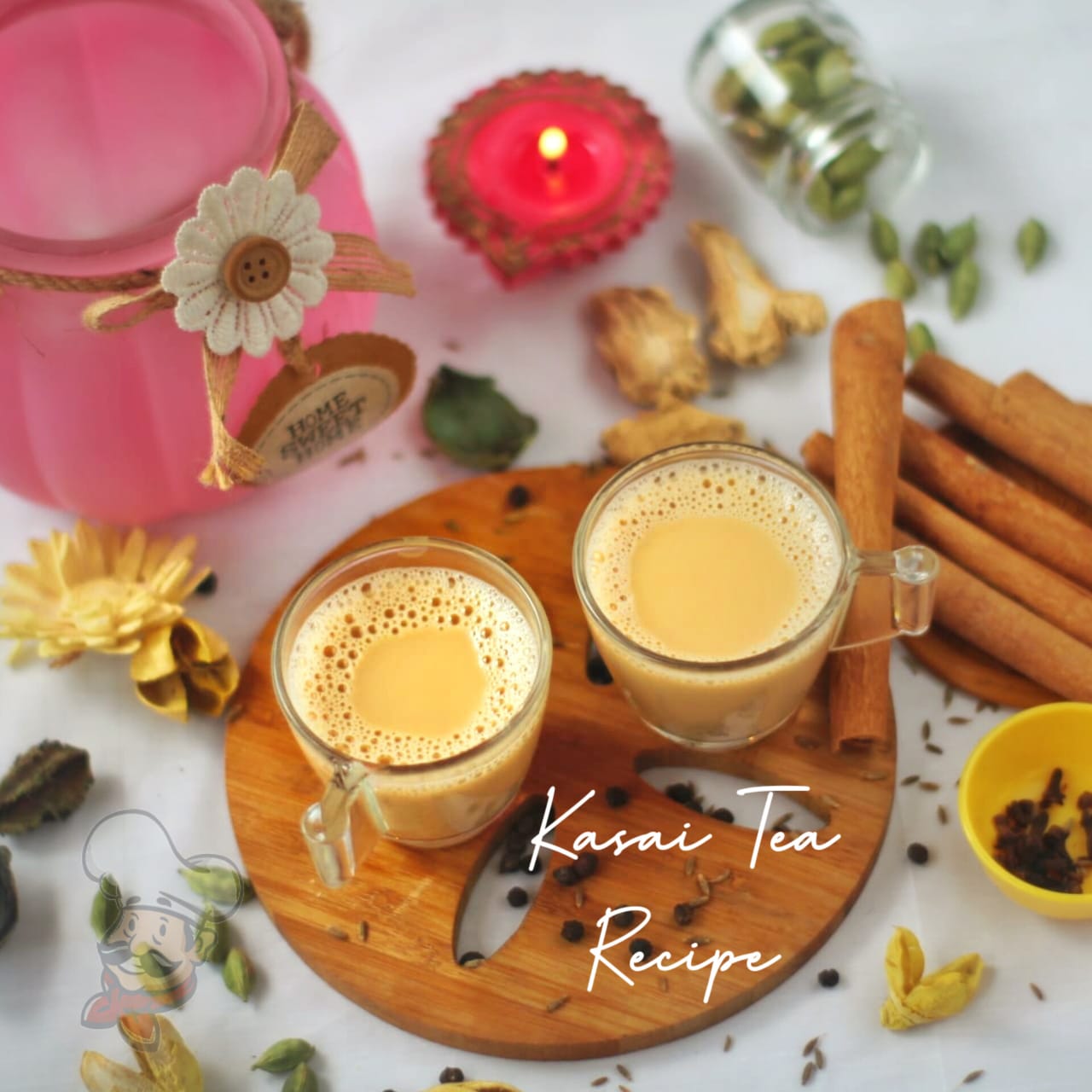
Ingredients Needed To Make Mangalorean Kasai Tea:
Step wise Directions to Make Perfect Mangalorean Kasai:
In a small saucepan, bring the water to a boil over high heat.
Add the tea leaves, cardamom pods, cloves, ginger, and cinnamon (if using) to the boiling water.
Lower the heat to medium and simmer the tea for 3-4 minutes. This will infuse the flavors of the spices into the tea.
Add the milk and sugar to the tea and bring it to a boil.
Reduce the heat to low and simmer the tea for another 2-3 minutes.
Turn off the heat and strain the tea into a teapot or serving cups. Serve hot with your favorite snacks or biscuits.
Ingredients
Directions
In a small saucepan, bring the water to a boil over high heat.
Add the tea leaves, cardamom pods, cloves, ginger, and cinnamon (if using) to the boiling water.
Lower the heat to medium and simmer the tea for 3-4 minutes. This will infuse the flavors of the spices into the tea.
Add the milk and sugar to the tea and bring it to a boil.
Reduce the heat to low and simmer the tea for another 2-3 minutes.
Turn off the heat and strain the tea into a teapot or serving cups. Serve hot with your favorite snacks or biscuits.

